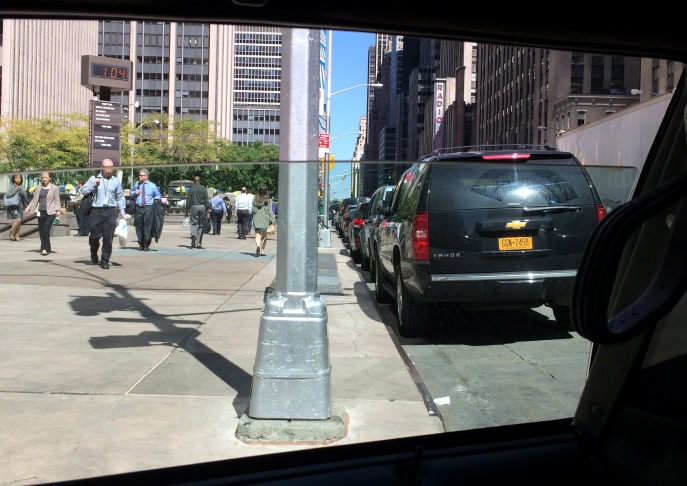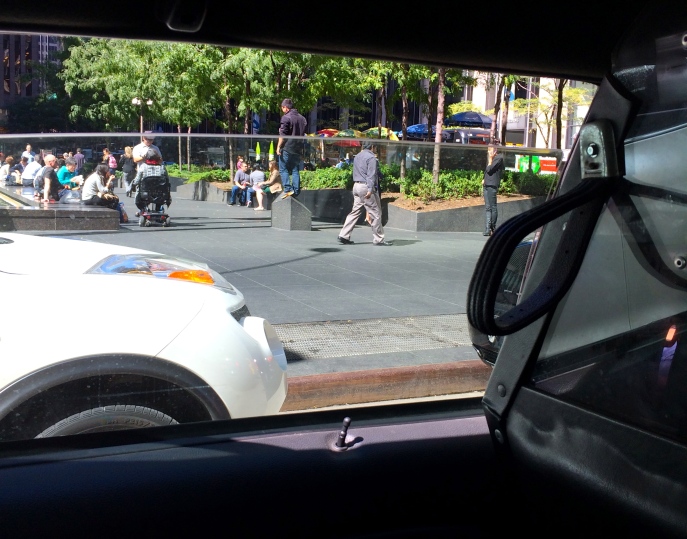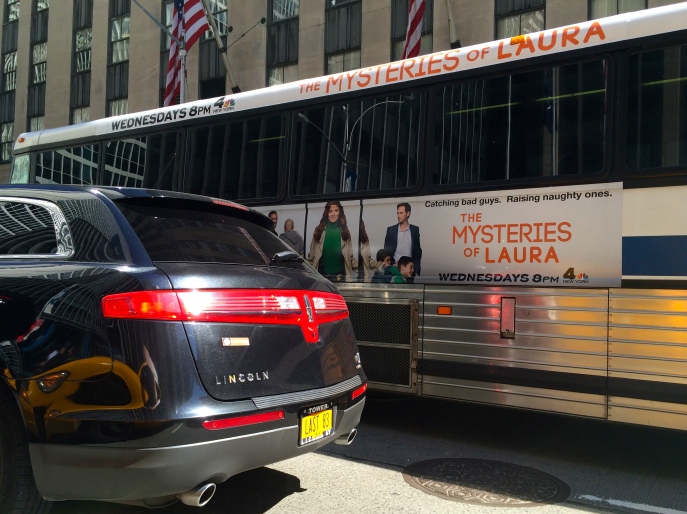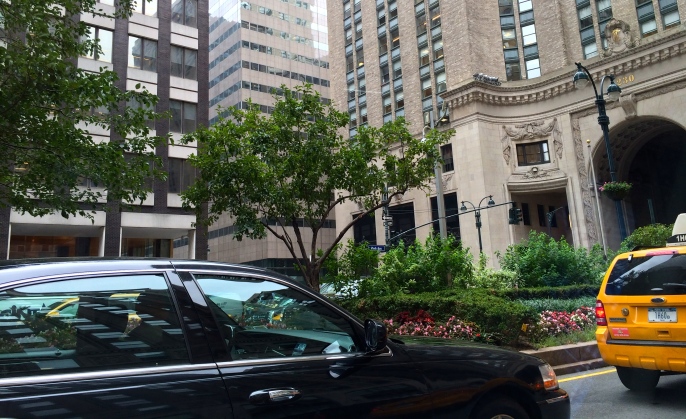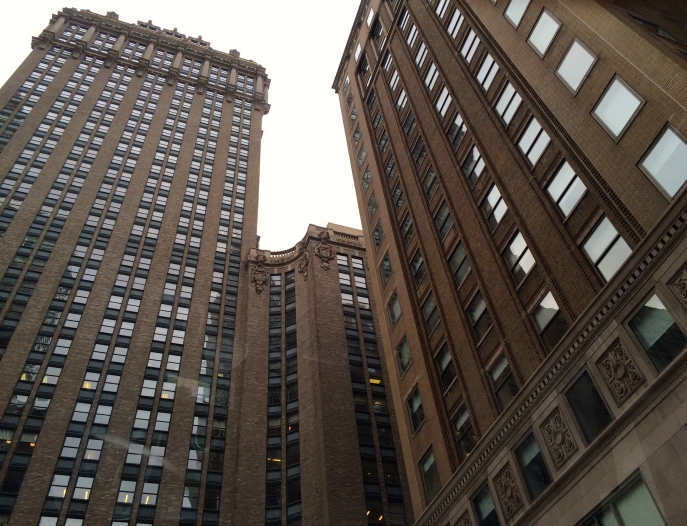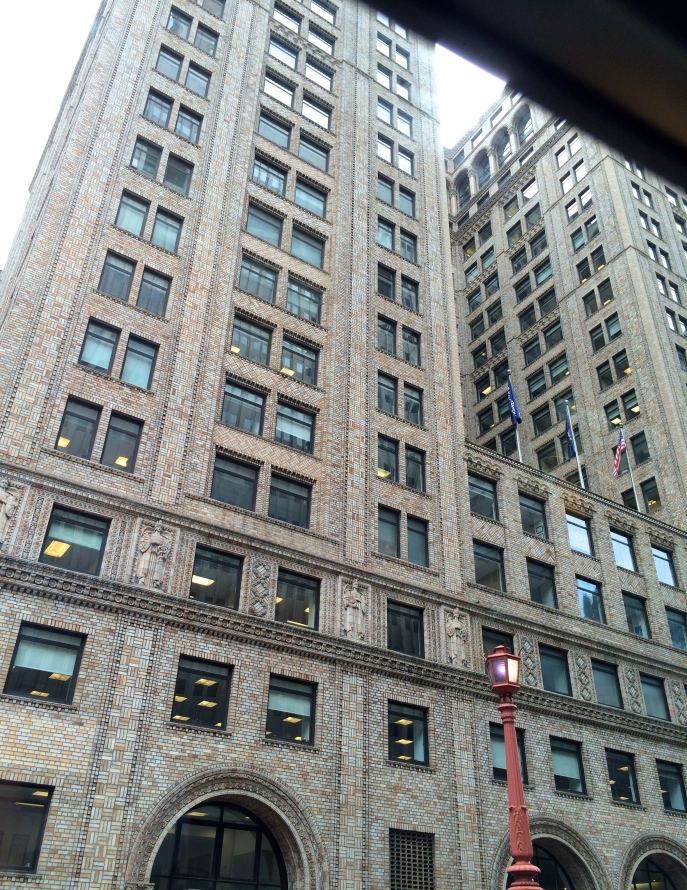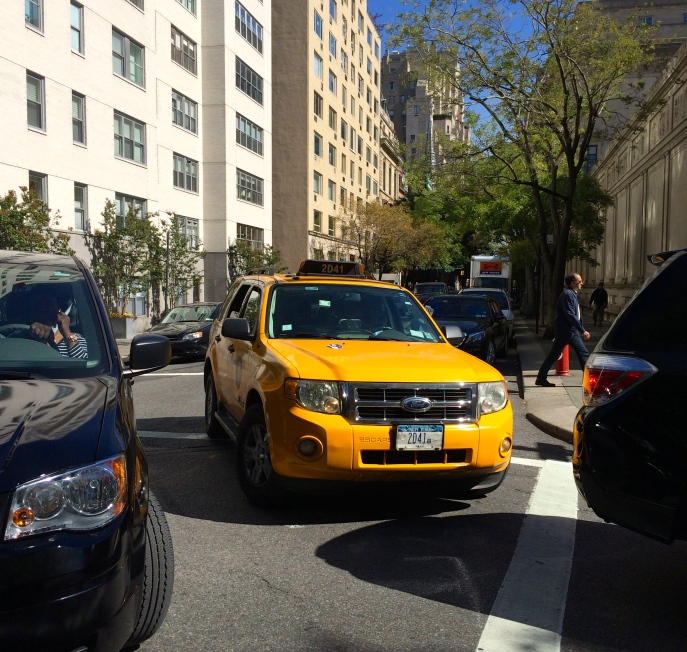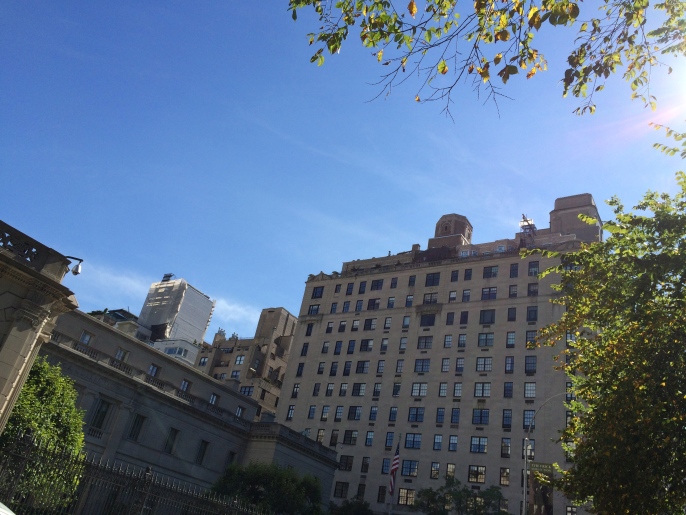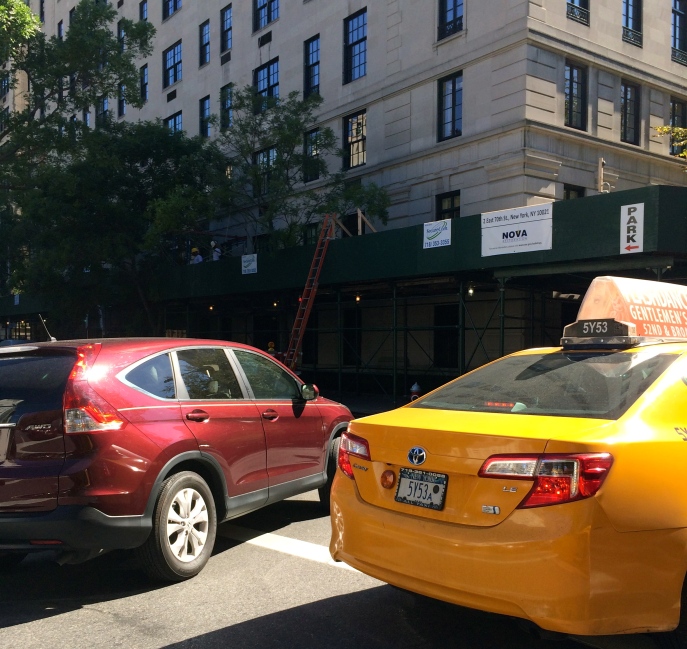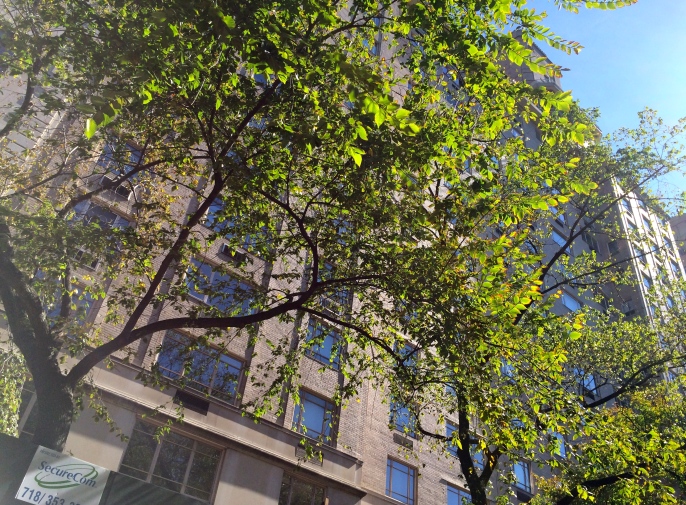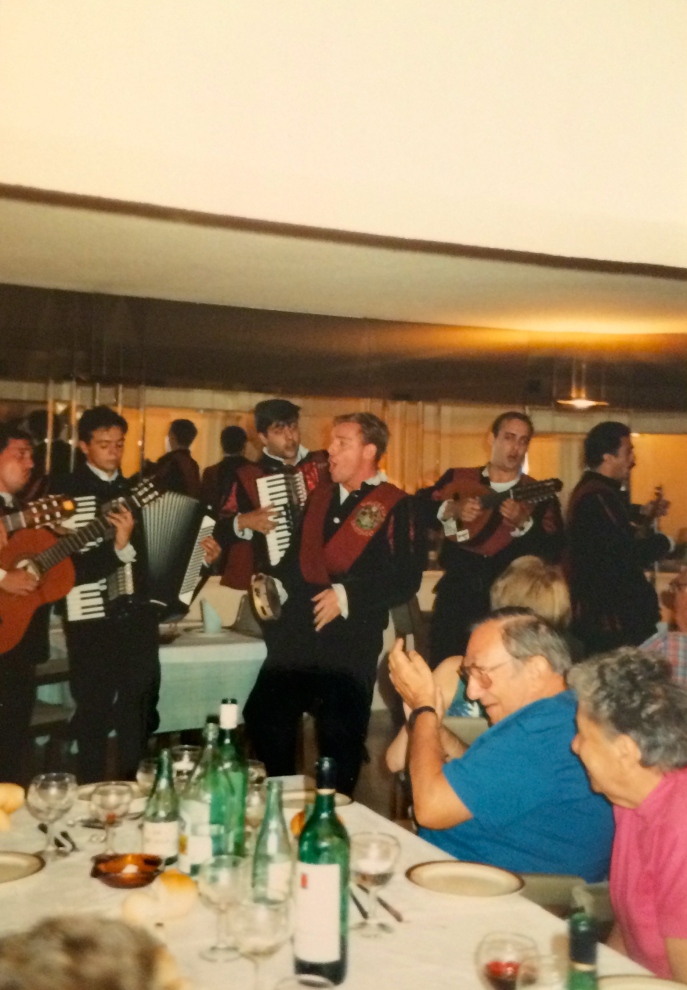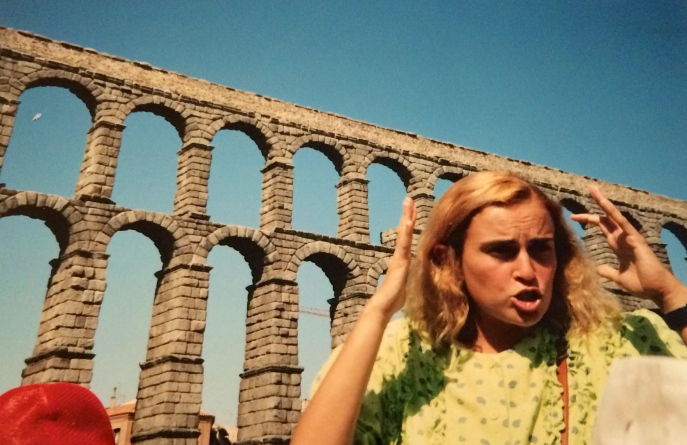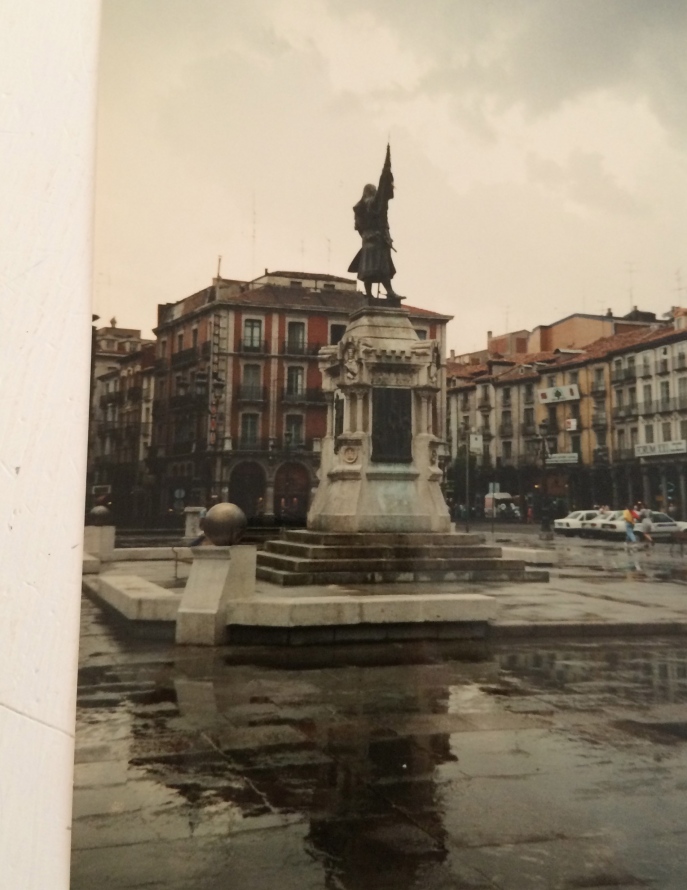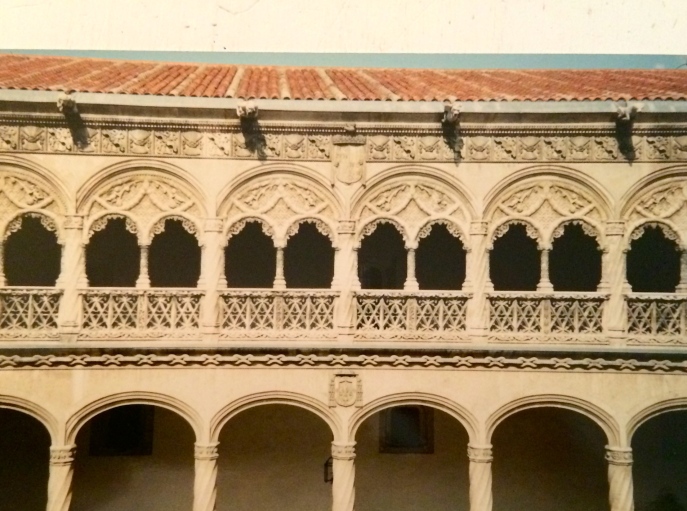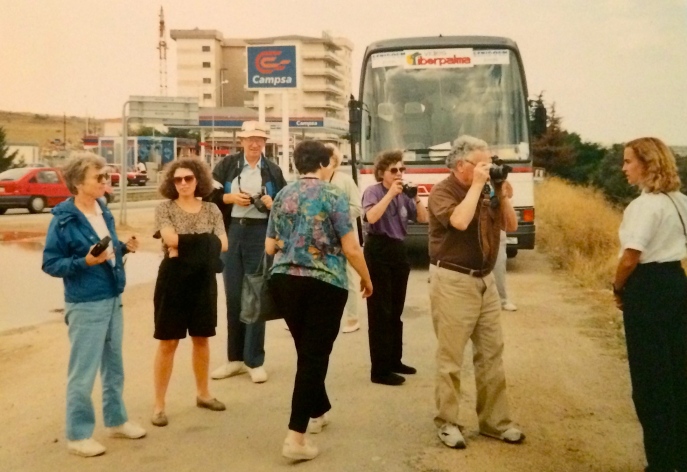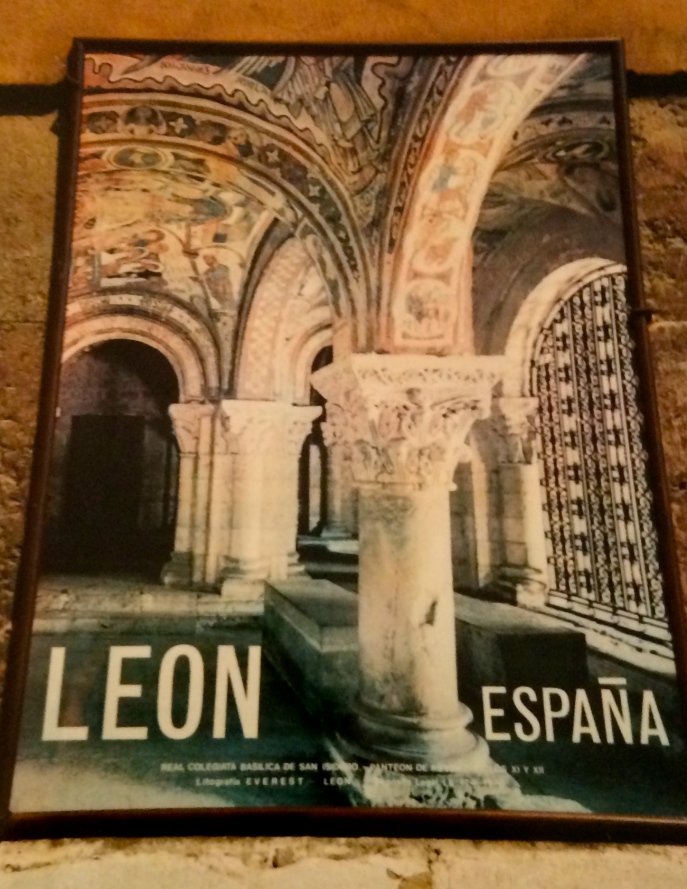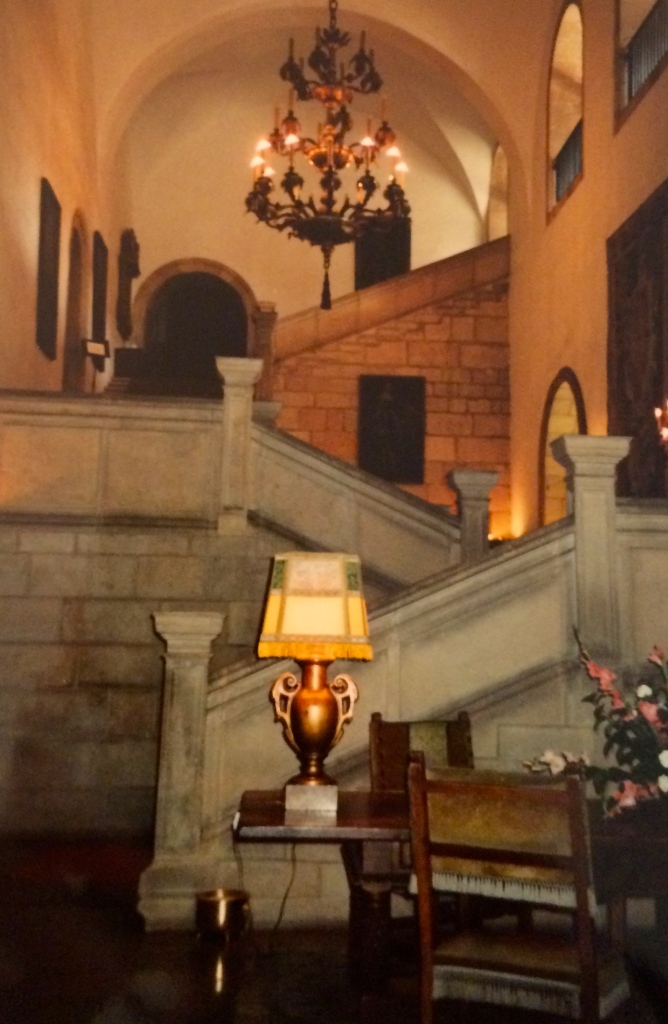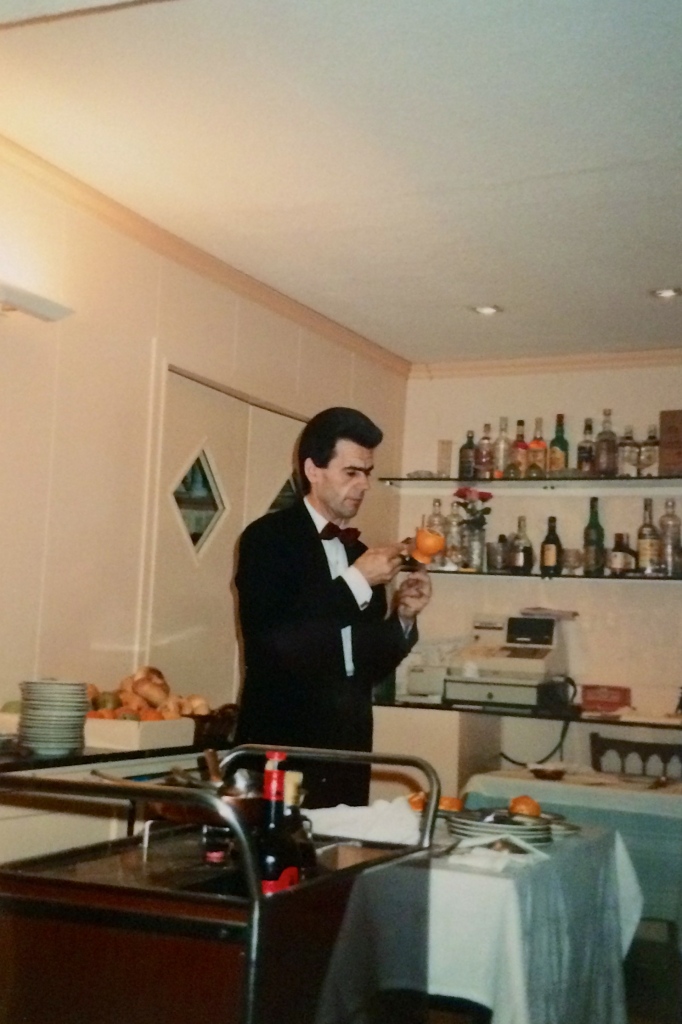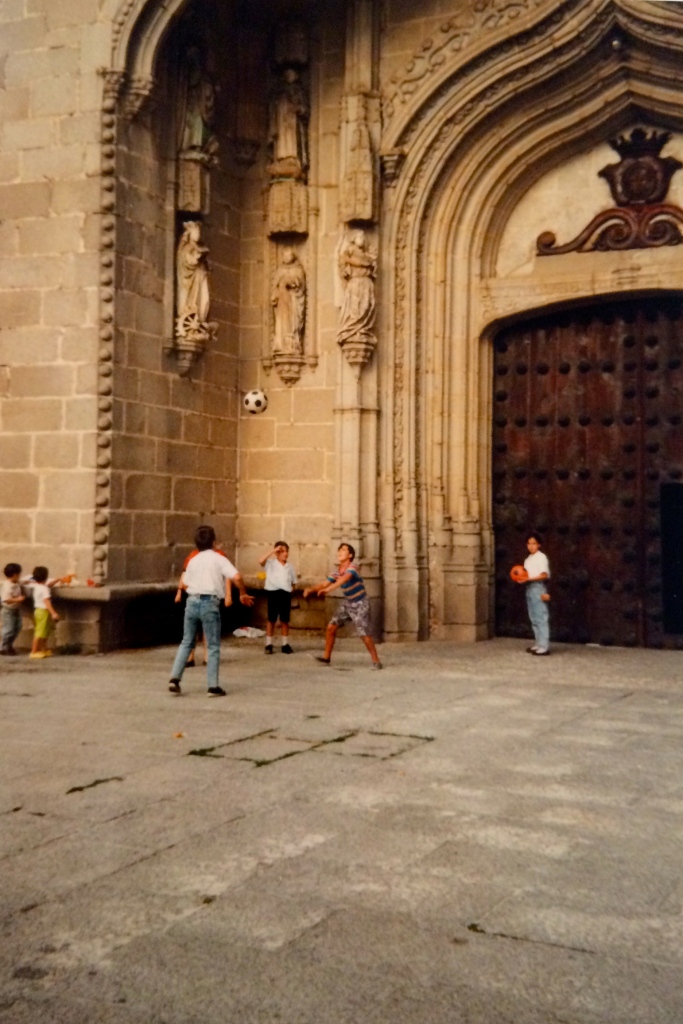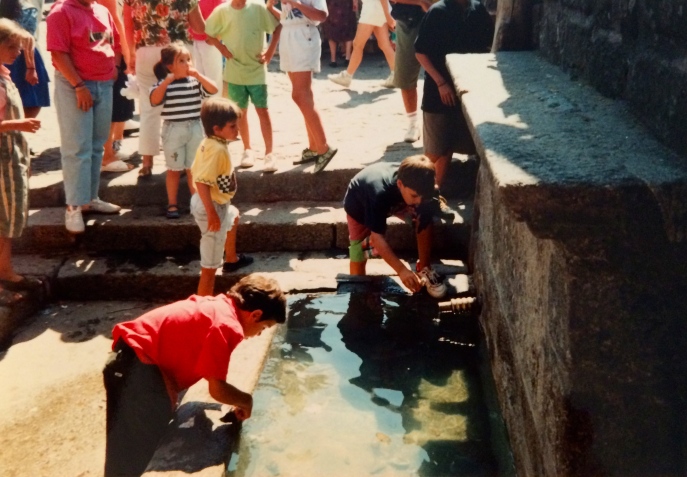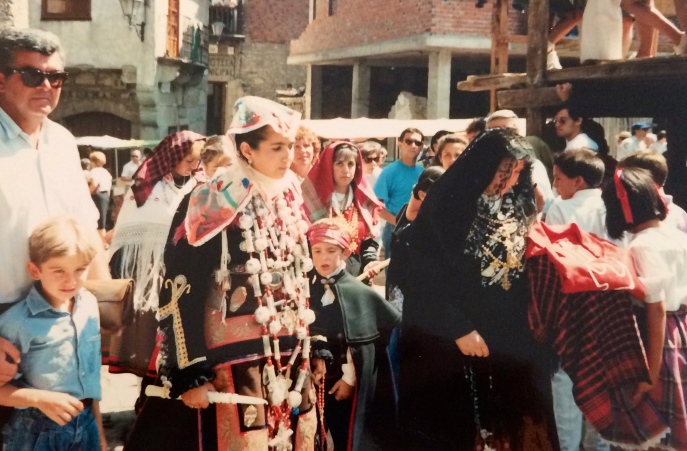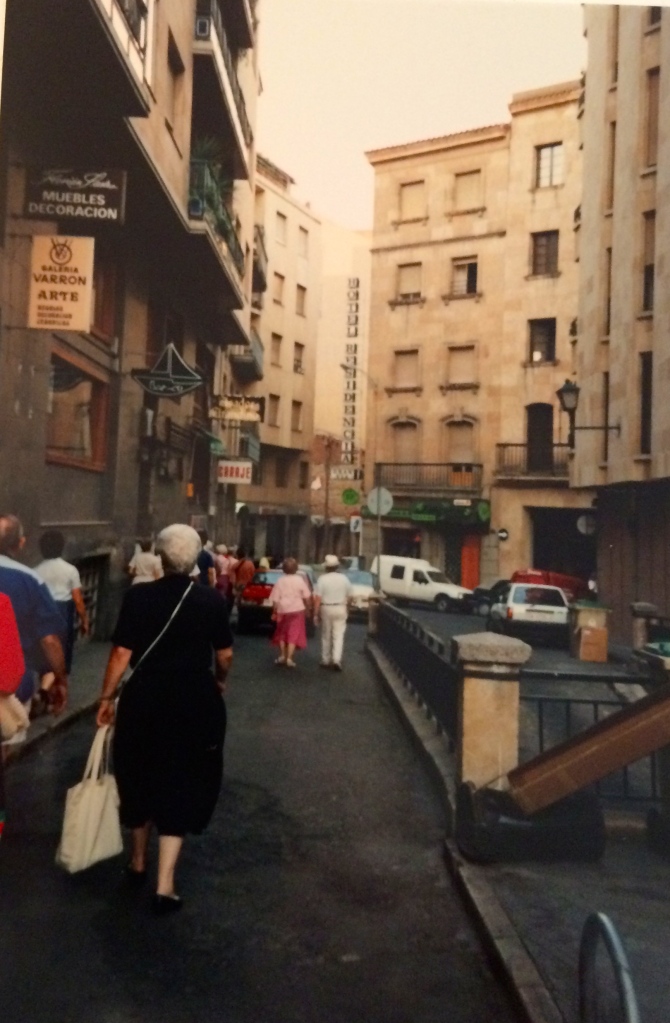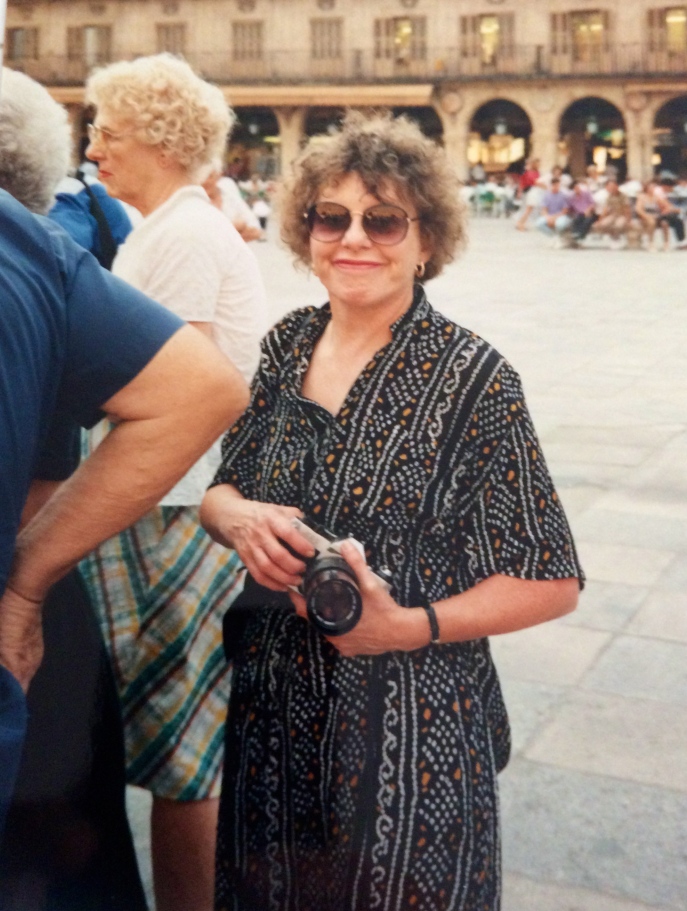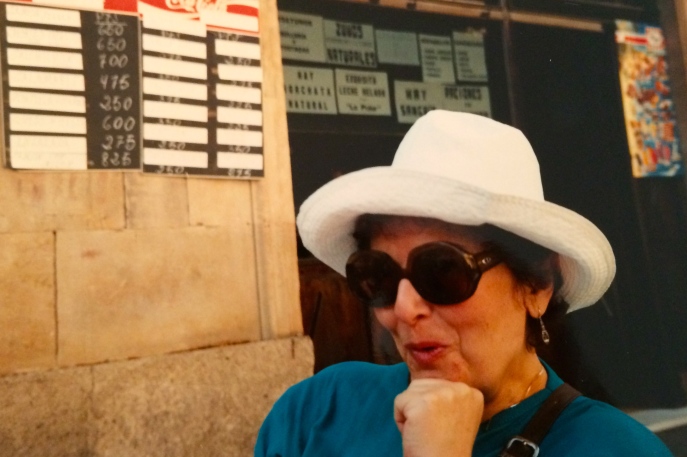[A Story.]
When Sophie was twenty-two and still living at home in Los Angeles, a white elephant named Clark lived there too. Clark actually rented a furnished studio opposite the Paramount lot. But he was nine years older than Sophie, divorced, and had four children, plus alimony and child support obligations. His job as a university instructor paid nearly nothing. He drove a broken-down ’37 Plymouth coupe and spent all his spare time writing unmarketable novels. The silent parental disapproval was palpable.
On the other hand, he wore a tweed jacket and had an MFA from Yale, initially major attractions for Sophie in this cultural wasteland to which her parents had moved her from the East a year ago. During the time she’d been with him in his pull-out Murphy bed, he’d also taught her quite a lot about what men like. Still, her parents were probably right. There was no future in it. He worked the summer session to make ends meet and spent August in Texas, where his children lived with their mother. All he could provide were modest weekend suppers, which Sophie cooked on his two-burner hotplate, and the diversions to be found in the Murphy, now becoming routine. He wasn’t even apologetic. “We’re made for each other,” he crowed. She would smile, falsely. She hated scenes, fled from conflict, chose the easy way. Also, there was no one else on the horizon.
And it wasn’t as if that were her only problem. At USC, where she was now a graduate student in the English Department thanks to a teaching assistantship which had come to her through Clark’s recommendation, she was just beginning to feel her way. She made sure to wear elegant suits with narrow skirts, handkerchief linen blouses, nylons with seams marching smartly up the back of her calves, and neat low-heeled pumps from Bonwit Teller – so no one could mistake her for a coed. But was it really all right to be teaching how literature illumined the meaning of life by sitting on the desk with her legs crossed, like Lauren Bacall on Harry Truman’s piano? Should she be reading aloud from The Catcher in the Rye to a Freshman Lit class of tanned eighteen-year-olds, plus a front row of vets newly returned from Korea and nine members of the freshman football team slouched against the back wall? Would someone from the Department come round to check?
Then there was British History 340 (MWF 2:00-2:50), unwelcome but necessary. No undergraduate English History survey course, no graduate English degree. It was surprisingly hard. And the thirty other students, male and fanned out mostly towards the rear of the auditorium, were – for her purposes — useless. They almost all looked too young. A somewhat older fellow with bad skin, up front on the left, nodded hopefully in her direction each time she slid into her seat up front on the right. But she always pretended not to see. There were also two other older ones, halfway back behind her, sitting together on their spines like her freshman football players. Returning GIs? Neither ever paid attention when she sailed past.
At the end of October, the professor concluded the hour by slapping the blue books containing the five-week exam answers on the first seat in front of the podium. 25% of the final grade right there. Sophie was nervous. Would a B jeopardize her assistantship? The class line snaked forward towards the diminishing pile of booklets. She took a deep breath, flipped through the top ones and recognized her name. In the upper corner of the cover: a large A-minus. New questions quickly trumped relief. Was grading on the curve? Had anyone done better?
A voice with a distinctive crack disputed a grade. The owner of the voice waved his blue book in the air; it was clearly marked with another large A minus. Indignation rose sour in Sophie’s throat. A-minus wasn’t good enough? He was arguing? And actually getting an A? As she watched, the professor crossed out the large A-minus, remarked it A, and altered the record of the grade in his grade book. The owner of the new A turned with a smile of triumph to the room at large. She recognized him. The taller of the two who sat on their spines halfway back behind her. His achievement clouded her weekend.
How fortunate he was expounding crap as she came down the aisle on Monday. “I’ve come to the conclusion the Jansenists were right,” she heard as she approached. “The world is evil and damned. And I’m evil and damned, too. There’s no hope for me. So what can I be but a Jansenist?”
Such an opportunity! Sophie turned partially towards the speaker, the better to show the curve of her hip and relative flatness of her girdled stomach, and inquired sweetly: “But why call yourself a Jansenist? This is the twentieth century! If you just eliminate God from your Jansenism, you could say you’re an Existentialist. Haven’t you read Sartre?” Sometimes even she was impressed by the nonsense that could emerge from her mouth when needed. He regarded her with interest. His dark eyes had a downward tilt at the outer corners which gave him an amused look. “Hm,” he said. “I’ll think about it. Since you say so.”
“Do.” And down the aisle she went, feeling much better about her A minus.
He was lounging against the banister of the stairwell when she came out after class. She had a key to the elevator. The preliminary repartee was predictable. It got him into the elevator with her. Their trip to the lobby was brief and silent. He looked at her. She looked at him. He was tall, with thick rough features, a dark crew cut that was growing out, and those amused eyes. He needed a shave. He wore a heavy purple sweater with a large white HC on it. Bad color for him. Made him too pale. But none of that mattered. Too soon the elevator door opened. “Well, thanks,” he said. “It was a pleasure. See you Wednesday.” Sophie so much didn’t want to forget any part of this encounter that she wrote it all down as soon as she got home.
On Wednesday he had shaved. He was very polite. He gestured to the empty seats next to her: “Anyone sitting here?” She smiled, shaking her head. He left one seat between them. The lecture began almost at once. They both took very careful notes. Sophie couldn’t have repeated a single thing she wrote.
They rode the elevator in silence again. Outside he asked if she would like a cup of coffee. They walked on slabs of sidewalk between borders of grass. It was as if she were in a movie. Although early November, the mid-afternoon sun was shining. He offered to carry her books. No, no she said, she could manage. He insisted on taking them anyway. No one had ever carried her books before. She knew they were talking about something, but the actual words didn’t count. Another something, very powerful, was pulsing between them. They reached Commons. The other teaching assistants from the English Department were sitting together at two tables and saw him carrying her books. She suggested they go sit with them but he said no, they should go downstairs. So the other teaching assistants also saw them go down to The Hole, where only undergraduates hung out. But what did it matter? Sophie’s real life was beginning at last.
They found an empty booth. He slid in opposite her. She ordered her coffee black with saccharin. (She was counting calories in those days, so as to look good naked.) He poured lots of cream and sugar in his and put away a big slice of blueberry pie while he told her about himself. She was so preoccupied with leaning her chin on her hand and hanging on every word she forgot to ask his name until he suddenly said he had to go. It was Yates. Like the poet’s, only spelled differently. And his first name was William, also like the poet’s. Will, he said. The middle name was Benedict, not Butler, but at least the initial was B. She loved it that someone who looked so tough had a poet’s name. Well, nearly a poet’s name.
On Friday, when they went for their second coffee, a buddy of his caught up with them, so Will sat next to Sophie. Maybe to show the buddy she was his. Although the buddy seemed to know about her already, whatever there was to know. He soon left for a date with a girl who was helping him with his German. After he was gone Will explained that it wasn’t a date, exactly. The girl the buddy was meeting was a prostitute from Germany and he had to pay for the sex; only the help with German was free. The idea that she had just met someone who paid women to let him inside their bodies was so astonishing to Sophie she couldn’t think of anything clever to say, so she just tried to look amused and knowing, and asked instead if he was a really good friend. Then Will hesitated a bit before saying they had only had a couple of classes together. But the buddy – casual acquaintance or no — brought them closer together. For their third and fourth coffees, on the following Monday and Wednesday, they went on sitting side by side. Although Sophie did notice that Will was still being very careful no part of him touched any part of her. She wasn’t sure why. Even though going slow was supposed to be a sign of respect, he must know, she thought, that she knew neither of them were playing games.
However, before the third coffee came a weekend. That Friday evening in the pull-out Murphy bed, Clark toiled without success between Sophie’s thighs. His head conveniently out of sight, she could go on thinking about how Will had grown up in a place in Boston called Southie, which she understood to be a poor neighborhood or maybe even a slum because he’d said he used to hang out with street gangs. He had enlisted at sixteen by lying about his age. (He was actually only two years older than she was. Perfect!) But the war in Europe was over by the time he’d finished basic training, so they’d shipped him to the Pacific. Fortunately, he missed the bad parts, like Iwo Jima, because MacArthur picked him to be in his Honor Guard instead. (The Honor Guard was all tall white guys, he explained.) And after discharge he’d eventually gotten his high school diploma and gone to the Cross on the GI Bill. (She would have to find out what, and where, the Cross was.) He’d also told her how once, during football practice, he scored the perfect touchdown. It didn’t count, he said, because he was only the third string quarterback and the Cross was mainly a basketball school anyway, but he didn’t care, because he had done it and he knew he had done it.
Clark looked up at Sophie over her stomach and asked how she was doing. She apologized for taking so long. Then she thought about how Will had finally walked out of the Cross one semester before graduation because he’d become disillusioned with the hypocrisy of the Church. (Which was the reason he was finishing up his last year out here; he’d started in February and now was nearly done.) That was so principled and brave of him there was just no way she was going to be able to come, no matter how long poor Clark kept at it. It didn’t occur to her to fake it. (Expedient fakery would be an acquisition of her thirties.) And in fact she was getting sore. So she encouraged him to forget it and finish up for himself. “I must be catching something,” she explained. On Saturday night, she said her period had arrived unexpectedly. She put the diaphragm back in its case in his bathroom cabinet, and they went to the movies instead. By then, Sophie could hardly bear to hold Clark’s hand. She wondered if she should try to feel guilty, or at least selfish, but all she really felt was glorious anticipation.
Will was unhappy at their Monday coffee. He said he hated his life and especially hated having to work after class selling Hoover vacuum cleaners door-to-door to ladies who already had an okay vacuum cleaner and didn’t need a new one. He really wanted to stay longer in their booth in the Hole. He wished they could stay there forever. On Wednesday he even walked Sophie from Commons to the faculty parking lot and seemed to have difficulty leaving. She considered this a promising development and wondered when he would ask her out. He was certainly taking his time. One thing she did know: absolutely no more weekends in the Murphy bed.
Clark had a late afternoon class on Wednesday. Sophie drove to his studio immediately after leaving campus, let herself in with the key he’d given her, stealthily removed her diaphragm from his bathroom and tiptoed out, locking the door behind her. She would have to keep the diaphragm case at the bottom of her purse because she couldn’t leave it at home, her mother looked everywhere. But it was a big purse, there was room.
On Friday Will was apologetic. He had to go right after class. He was sorry. So sorry. Coffee would have to wait until Monday. She telephoned Clark to say she was ill, had skipped history class and gone right home. Fever of 103. If she were better on Saturday, she’d let him know, but she felt awful and it didn’t look good. She was sorry. So sorry. She spent the weekend douching in the bathtub to clean every trace of him out of herself. Her mother kept asking through the door if anything was wrong. Between baths, she studied British History because it reminded her of Will.
Sophie’s first Freshman English section met at 9 a.m. on Monday. She was there five minutes early, in suit, pumps and makeup — looking pretty good, she thought. The students drifted in. Just as she was closing the classroom door to begin, Clark’s face, red-eyed and distraught, appeared through the glass panels. The students strained to see what was going on. “You’ve left me,” Clark sobbed, not quietly. She heard a suppressed giggle from somewhere behind her. “Ssh,” she hissed to Clark. “I’m teaching now.” Couldn’t he just slink away and lick his wounds by himself? “You took your diaphragm!” he exclaimed in strangled grief. A freshman football player trying to enter the room around him did a second take and smirked. “You’ve left me for someone else!”
“And?” Sophie closed the door on him, turned to her class and shrugged. They laughed. She knew she should have handled it better, and managed not to smile back. Then she took attendance, still chewing the inside of her mouth to keep the corners from turning up. Everyone was unusually attentive. It was a rewarding class.
She was afraid Clark would reappear at any moment during the rest of the day, but he kept his distance. Now and then she thought how awful he must be feeling, but that made her feel awful herself. She tried to reason herself out of it. Didn’t he understand that they couldn’t have gone on endlessly, with her just providing the sex in his financially constricted life but getting nothing else out of it? Didn’t he have any remorse for his exploitation of her youthful optimism, her good nature? It had to stop. She was entitled to a life, too.
Then she was at last in the Hole again, sitting side by side with Will. His bare right forearm lay on the formica table parallel to and no more than a quarter inch away from her bare left forearm. Sophie looked at the two arms, so close together. The skin on his was paler than the skin on hers, as if he hadn’t been in the sun at all, even last summer. And it had fewer hairs on it than Clark’s or her father’s. It was foreign flesh. Pale muscular foreign flesh, sparsely dark-haired. So different. So exciting.
“I want to go to bed with you,” he said.
She went on looking at their arms. Well, of course. Wasn’t that what she wanted, too? How honest he was! “You have to understand,” she said carefully. “I don’t just do that. With this person and then that person. When I go with someone, it has to mean that we’re together, really together.” She stopped short of mentioning love. She wanted him to say it first.
“I do understand,” he said solemnly.
Now she had to say yes or no. If she said no not yet, would that mean she wasn’t the sophisticated woman he took her for? She didn’t think she could say no. “All right then,” she agreed. “If you really mean it.”
“ I really mean it. Let’s go.” He started out of the booth.
“Wait! Go where?” This was all happening very fast.
“I’ll find somewhere.” Up the stairs he went, to the public phones on the street level.
His car was a green ’51 Pontiac. He put their books in the trunk, next to some spare Hoover vacuum cleaner parts, and they screeched out of the student parking lot. Sophie had to ask where they were going. He said he’d called friends in Covina who were willing to take in an early movie. Their key would be under the mat. Then he didn’t say anything else. He just drove, both hands on the wheel, eyes fixed straight ahead — with focus and speed appropriate to the driver of a getaway car. Maybe she was making a mistake.
“Considering what we’re about to do,” she said after a while, “you might be a little friendlier.” The car lurched to the curb, she heard him jerk the hand brake, he grabbed her like a starving man, his mouth opened on hers, her heart dropped, they kissed and kissed, she dissolved next to a hydrant on North Puente, and long afterwards she could still tremble when she remembered.
The rest of the ride was better. Will found a Thrifty Drug, where Sophie bought spermicidal jelly and he bought fortified port wine. After they got back into the car, he took her hand while he drove with the other. “Tell me,” he asked, “do you always carry your diaphragm around with you?”
It was nearly dark when they arrived. There were two rooms. They tiptoed through the first, which had bookshelves, but that’s all Sophie could see, because of course she had her glasses off. The second was the bedroom. He was clumsy at finding her buttons and hooks so she quickly undressed herself while he pulled off his sweater, shirt and pants and kicked off his shoes. Next she went to the bathroom. Sitting on someone else’s toilet squeezing jelly into the rubber cap, she reflected that this wasn’t as romantic as she might have liked. But it was much too soon for babies. After she emerged they drank some of the port out of the bottle (Sophie took only a sip because of the calories), and kissed again. Then his erection got in the way of more really close kissing so they went to bed, he climbed on top of her and came very soon. “That’s okay,” he said, putting his arm around her. “There’s lots more where that came from. Once I came seven times in one night.” She did like the arm around her.
The second time she managed to get a pillow underneath herself before he mounted, but it didn’t help much. She wondered if it was because his penis was rather slender, compared to Clark’s, but decided that was probably not it, since it was long enough and hard enough, and certainly energetic enough. More likely, it was just that he seemed not to know what to do with it except come as quickly as possible. He didn’t even seem very concerned that she hadn’t. She would have to give lessons. Very delicately. Generously, she forgave him. How could he have learned about lovemaking given his rough and difficult life? He might have been mostly with whores, like his buddy. Maybe she was his first real girl.
The third time Sophie suggested she get on top – which was apparently such a novelty to him that again he came almost at once. Instead of apologizing, he beamed. Finally, out of desperation, she offered to go down on him, to try to empty him out a bit. But just as he was about to come rapidly a fourth time, there was the sound of a key in the lock. All she could remember after that is cowering naked and scared under the sheet while Will pulled on his pants and went to the front door for some whispered negotiations. They had ten minutes to wipe up, make the bed and get out of there.
He was hungry. At a drive-in near the university he ordered a double cheeseburger, extra large fries and a malted. Sophie held off, lit a cigarette and tenderly watched him put away his food. Men were really just little boys, weren’t they? But after he had finished the last crumbs, he remarked only that they’d better be getting back to the faculty lot for her car. Was that all he had to say? She looked away through the side window, so he shouldn’t see her disappointment. He did ask for her phone number, though, and memorized it right there. He didn’t have a phone himself, he said, but he’d find a way to call. He nodded twice when he said it, for emphasis, and repeated her number out loud afterwards, to show that now he really knew it. He also leaned over and gave her a little kiss, on the lips, when they reached her car. The next morning she slipped Clark’s key into an addressed envelope and dropped it in a mailbox on the way to school.
The phone rang Wednesday evening as Sophie was finishing dinner with her parents. It was Will. He had some free time. Could she come out with him in about ten minutes? They did some fooling around in the green Pontiac before he explained that he hadn’t been able to find a place for them to go. Would it be all right if they just had a bite and wandered around? Silly boy. Did he really think it wouldn’t be? He drove to a restaurant on Hollywood Boulevard where she watched him put away half a large roast chicken and mashed potatoes with gravy, a dish of cooked sliced carrots glazed with honey (he said he liked carrots very much) and two ice-cream-soda-sized glasses of chocolate milk. He spread a pat of butter on each of the two white rolls that came with the chicken and wolfed them both down for dessert. “How can you eat so much and not gain weight?” she asked. “I use a lot of energy,” he said. “Can’t you tell?” She guessed she was supposed to giggle at this, so she did.
They strolled out of the restaurant hand in hand and went to Pickwick’s, where they gazed at the shelves in the literature section and Sophie talked about Proust, which she had read most of and he hadn’t, while her curled fingers slid up and down his thumb. His good night kiss at her front door seemed almost reverent. She felt they were going to be together forever.
On Thursday he sauntered into the Department office and up to the open door of her cubicle unannounced while she was in conference with a Korean War vet from one of her sections who was seeking guidance (he said) with setting up his courses for next semester. Will and the vet eyed each other suspiciously. It was wonderful. When the conference was over, Sophie and Will went out into the late afternoon. She had a graduate seminar on Dryden and Pope in half-hour but didn’t mention it. They stopped to watch a football practice. The field was walled on the side near the sidewalk so that she couldn’t quite see over, even on tiptoe. Will noticed. He put down her books and lifted her so her head was level with his and they could look together. She had no idea what she was watching or what it meant, but for those few moments that his arms held her up with her feet off the ground, how could she not be happy?
He took her to a studio apartment much like Clark’s but closer to the university. “Whose place is this?” she asked. “Don’t worry,” he responded soothingly. “We can use it all afternoon.” That didn’t answer the question, but she didn’t press it. She had another problem. Now her period really was here. She told him as he was lowering the Murphy bed from the wall. He said it didn’t matter, he didn’t care.
He did care about not making a mess, though. With a thick layer of old newspaper crackling under her naked behind every time she moved, and toilet paper and her last unopened Tampax within reach on the floor next to her side of the bed, the afternoon began to seem more about keeping the bed clean than abandoning herself to the transports of love. Did she dare turn over? Was her ass covered with newsprint? Was now the time to pull the plug and let him in? Sophie groped for the little white string with one hand, but it was slippery and wet and impossible to yank. Then she wrapped a thick wad of toilet paper around it, and gave mighty tugs with the thumbs and forefingers of both hands until finally out came the used and swollen tampon, hot from her body and soaked dark. “Wait!” she cried, holding him off with elbow and knee while she wrapped the detritus of her innards in more and more toilet paper until she could see no more seepage. Predictably (and mercifully), he came fast, at which point she pushed him off — lovingly, she hoped — so she could insert the last clean Tampax before there was damage to the sheets. That pretty much ended the promise of the afternoon for her. She wondered if she wouldn’t have been better off at the Pope and Dryden seminar.
His cleanup was thorough. Bed carefully remade and folded away. Roll of remaining toilet paper replaced in the bathroom. Stained newspaper, soiled toilet paper (with its contents), and Sophie’s three cigarette butts into a garbage bag. Ashtray wiped down. And then out — holding the garbage bag, to dispose of elsewhere — after checking that nothing was left behind. As he locked the outside door, she peered at the name next to the bell. “Yates.”
“Then this is your apartment!” she said. “No, “ he replied. “But it used to be.” As if that were an answer. He hurried her into the car.
She thought she would see him the next day, but when she arrived at the English Department Friday morning she discovered a teaching assistant meeting had been scheduled for two that afternoon, so she had to cut History. Two cut classes in as many days; her life was going out of control. At the meeting, another teaching assistant who was her best friend in the Department whispered that Clark had called to ask for a date and she had said yes. Since Sophie had broken up with him she thought it would be all right. They were going out Saturday night. Sophie knew he would try to get her into bed. Not because she was so gorgeous but to get even. Would she yield? On the first date? She was still a virgin. (Unless she was lying.) But he was very skillful. Should Sophie warn her? Maybe she wanted to be deflowered. Maybe she’d been secretly jealous of Sophie this whole semester. We never know the real truth about anyone, do we? The Department Head was discussing the last composition unit of the fall Freshman English semester. Did he actually believe you could teach anyone to write? Afterwards Sophie walked over to Commons with the best friend to show no hard feelings, and they had coffee with the others who’d been at the meeting and were jabbering about what the Department Head had said. She kept her eyes on the door but never saw Will come in looking for her.
She didn’t hear from him all weekend. She tried not to think about the apartment with his name next to the bell or what he might be doing when he wasn’t in school or selling Hoovers door to door, and thought instead about what Clark and the so-called best friend might be up to.
On Monday, Sophie cornered her. “So? How was it?” “Fine.” “Going to see him again?” “Don’t know yet.” She didn’t look particularly glowing or fulfilled, but maybe she was simply distracted; she had a class in five minutes. What did ‘fulfilled’ look like anyway?
Two o’clock finally arrived. There was no time to ask Will about his weekend. After the lecture, he carried her books again, though. And the sun — she would always remember the sun was still shining and they sat on a bench for a while to enjoy it. “Thank goodness next Thursday is Thanksgiving,” she began. “A four-day break. We’ll have some real time together.” He looked uncomfortable. “Well, no,” he said. “We won’t. I can’t see you then. My mother’s here.”
He’d never mentioned a mother before. Should she suggest he introduce them to each other? No, the thought should come from him. “You won’t have to spend all that time with her, will you? Thanksgiving dinner on Thursday, of course. But all four days?”
He nodded, sadly.
“But Will, why? Doesn’t she understand you have a life? I mean, it’s not as if you were married!”
He took a deep breath. “Actually,” he said, “I am.”
His wife was seventeen. He’d knocked her up on the beach at Santa Monica the previous May. She’d been a virgin. Catholic, too. So how could he walk away? The wedding had been in August, before it really showed. Her family was helping them, until he got his degree. In fact he was living with them. Sophie couldn’t process it fast enough. Seventeen? It was those cashmere sweaters, he said. All the coeds in their cashmere sweaters. After the Cross, it drove him crazy. And she was pretty. Smart, too. She wanted to be an electrical engineer. So once he got her panties off.…
“But if you were married,” Sophie cried, “what did you think you were doing with me?” He looked down at the ground. After a while he said quietly, “I thought I could have a wife and mistress both.” Mistress? Hadn’t he understood what she’d been offering? What did he think this was? Some kind of Victorian novel?
“Can I still go on seeing you?” he asked.
She couldn’t give him up now, just like that. Temporize, she told herself. Play for time. Cry later.
He looked happier when she said yes.
They walked to Commons. His mother really had come for Thanksgiving. She was staying in the apartment with “Yates” on the doorbell; he had kept it after the wedding to have a place to escape to. She was also job-hunting, she might move out from the East, he was her only child. Sophie nodded. And nodded. What could she say? He went on, suddenly a fountain of information. The new Mrs. Yates was called Bridget, she’d had to give up school this year because of the baby, she was a good sport ….
They sat thigh by thigh in the Hole. The buddy who was learning German from a prostitute passed their booth and waved. He must have known all along. Sophie felt dirty.
“I wish we could run away to Alaska together,” Will said.
“I wish it had been you I met last May,” he said.
“I wish I were a better person,” he said.
That’s about as contrite as he got.
He called on Thanksgiving, around ten o’clock, from a phone booth on the corner near his in-laws. “I had to get out for some air,” he said. She was ready to meet him, but he had to go back. They both got A on the History ten-week. She wondered how he’d managed, with so much going on in his life. She’d had to really study for hers. The week after Thanksgiving break he came to the house to pick her up. A theological student who was out of town had lent him a key to his room. It was a narrow sliver of space containing a single cot with black blanket, a metal desk piled high with religious texts, one folding chair, and a dark prie-dieu. On the disapproving walls were several crucifixes in various sizes. They sat on the austere black blanket and tried to kiss. Then they hung their clothing over the back of the single chair and did what they had come to do. It was all very sad, although Will seemed to be in good working order in spite of their situation. Afterwards, they lay on top of the black blanket while he stroked Sophie’s arm. She told him he would love the baby when it was born. It was going to be his baby, a part of him. She thought she ought to say these things to sound wise and warm, and to make him feel better, although she had no idea if they were going to be true. He looked doubtful. “But I don’t want to be married,” he said. “The baby will make everything all right,” she murmured reassuringly, hating Little Miss Pure who couldn’t hang on to her underpants. She was dying for a cigarette. The theological student had no ashtray. “Let’s get out of here,” she said.
They went to Milani’s French Dip on Santa Monica near Highland. Plenty of ashtrays there. Their booth had a little box on it labeled “Swami Says.” For a penny, inserted in the appropriate slot, you could ask Swami any question answerable with yes or no. “Do we have a future together?” Sophie asked Swami. Swami said no.
She fished another penny out of her change purse. “Will we at least see each other until the baby comes?” Swami said no.
She counted out more pennies. “Will we go on being friends?” Swami said no.
“Is there anything we can do to change your mind?” Swami said no.
“All it can say is no!”
Will dropped her last penny into the slot. “Will the baby be a girl?” he asked. Swami said yes. Will smiled.
And then it simply unraveled. Will began to look for another job for when his classes would be over and had to hurry away after History to go on interviews. The week before Christmas vacation, they went a last time to the Hole. He seemed resigned to what would be. Sophie tried to memorize his face. “Time was just out of joint for us from the beginning,” she said. “I guess,” he said. The buddy who was learning German from a prostitute came by and Will invited him to sit with us. They talked about the baby coming, and the job market, and it was almost as if Sophie weren’t there at all. At the end of the last History class, Will said he had to go. He was still wearing his purple sweater. Sophie was getting fond of it, now that she would probably never see it again. He put out his hand half way and then took it back and gave a little wave goodbye instead. She nodded and turned quickly, before he did. She wasn’t going to stand there and watch him walk away from her. He must have taken the final with a different proctor because she didn’t see him in the exam room to which she was assigned. She got an A in the course and assumed Will did too. Although what difference did it make, now that he was out of school and about to become a father?
Clark soon re-insinuated himself into her life. The business with the best friend had never gotten off the ground. He forgave Sophie her trespasses. (Although he didn’t forget them.) All was (almost) as before. Except she did hear from Will once more. He phoned from a booth in the hospital one evening in February. The baby was a girl. He was naming her Miranda, after Prospero’s daughter in The Tempest, because he wanted to protect her from the corrupt and evil world. “I had to call,” he said, “to say you were right. As soon as I saw her, I loved her. I wanted you to know.”
The following Christmas he also sent a card, without a return address, wishing her the joys of the season and enclosing a snapshot of a baby girl with dark curls clinging to the bars of a playpen. The line drawing on the front of the card showed a naked showgirl sitting in a giant champagne glass full of bubbly with her legs and arms in the air. Sophie sat looking at it for a long time, trying to make it feel less hurtful. But she couldn’t. At last she tucked it in a file folder discreetly marked WBY, together with her notes of their first meeting and the Thrifty Drug sales slip for spermicidal jelly and port wine from that time they had driven to Covina.
Eventually Clark’s ex-wife found a new husband, the alimony payments slipped from his shoulders, and he proposed. He should have known better, but apparently he didn’t. For her part, Sophie was by now nearly twenty-four, only a year from old-maidhood. Fate had already dealt her what she thought of as a tragic blow in the true love department. So it seemed best to put away lingering thoughts of William Benedict Yates and accept what was offered.
Maybe it would work out.






